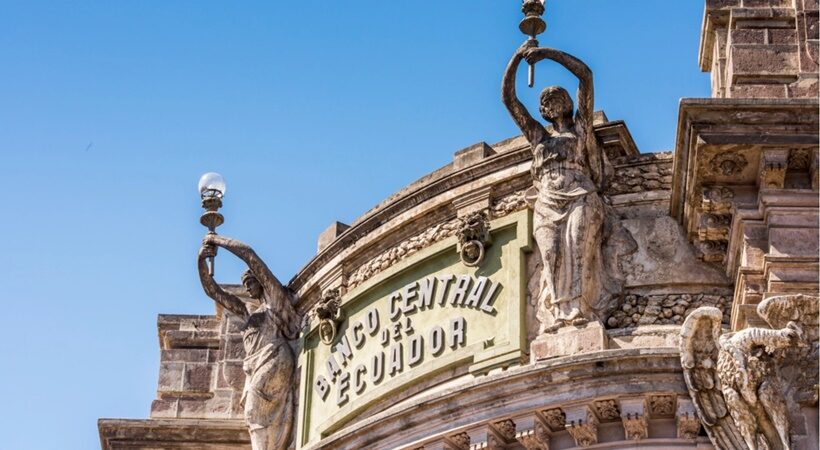A cryptocurrency-specific regulation will be issued by the Central Bank of Ecuador later this year. The Ecuadorian Central Bank’s manager, Guillermo Avellan, spoke of the need for more clarity in the cryptocurrency world and how the move would help prevent money laundering and other crimes.
Ecuador’s central bank aims to make crypto a reality
The Ecuadorian Central Bank will prepare and issue cryptocurrency-related regulations this year, stated in a recent interview, the Central Bank’s manager Guillermo Avellan.
Avellan responded to a question about the state of cryptocurrency regulation in the country and how it lags behind other countries in the region. He said: “Considering that the Monetary Code provides that the dollar is the sole legal tender in the country, the Central Bank is working on a project to regulate cryptocurrencies”.
Considering that the Monetary Code provides that the dollar is the sole legal tender in the country, the Central Bank is working on a project to regulate cryptocurrencies. Instead, this new regulation would aim to bring more clarity to the country’s crypto policy.
Reasons behind the Resolution
Additionally to the factors described above, another reason for regulating cryptocurrencies is the government’s worry about the possible illegal use of these assets. Avellan explained that banks would be able to limit the way these tools are used with the regulation in place.
Several actors have used cryptocurrencies for money laundering purposes in the country, and these regulations would curtail those instances. Even though the government banned bitcoin in 2014 and launched its own digital token called Dinero Electronico in 2017, cryptocurrency usage has continued to grow.
Avellan’s numbers indicate that half of the country’s population has no bank account. Although Avellan did not provide specifics on implementing these regulations, he did offer some estimates: “We will begin work in the first quarter of 2022 so that it can be reviewed and approved between the second and third quarters of the year by the Monetary Board”.



















